Baguio Central University (BCU) made history by becoming the first academic institution in the Cordillera Administrative Region (CAR) to host an in-house Basic Research Ethics Training (BRET). Spearheaded by BCU’s Research and Development Center (RDC) Director, Dr. Michael T. Sebullen underscores the University’s deep commitment to fostering ethical research practices, particularly vital for fields like the College of Nursing and School of Midwifery, where patient well-being is paramount.
The intensive two-day training, launched on July 29, 2025, saw the participation of 30 faculty members, deans, heads of offices, and directors from across the university. Its official recognition by Cordillera Regional Health Research and Development Consortium(CRHRDC) further solidifies BCU’s pioneering role in institutional capacity-building with the region.
For the College of Nursing and School of Midwifery (CNSOM), this training holds immense significance. The two-day training was attended by the college dean, Dr. Gina Casi, the College Research Coordinator, Mr. Hilario Sanglay, the Midwifery Coordinator, Dr. Ailen Rafael, and a faculty member, Mr. Nestor Guillermo. Our professions are inherently rooted to patient care, and ethical considerations are at the very core of every interaction and every research endeavor. As Dr. Elma D. Donaal, Vice President for Academic Affairs, articulated in her welcome remarks on behalf of University President Dr. Margarita Cecilda B. Rillera, this initiative is “not just a compliance requirement. This is a declaration of our commitment to raise the ethical standards of research in the University, and to ensure that values of integrity, equity, and relevance guide our academic output”. This commitment directly translates to ensuring the safety, privacy, and informed decision-making of the individuals we serve in our research.

Day one of the training, held at Margarita Joven Fernandez Hall, was filled with engaging lectures, interactive case discussions, and collaborative small group workshops. Expert facilitators from CRHRDC delivered crucial topics such as the fundamental principles of ethics in research, defining ethical principles, and the proper preparation of informed consent and assent forms. These topics are particularly relevant for nursing and midwifery research, which often involves vulnerable populations and sensitive health information. Dr. Eleanor D. Cuarte, a Medical Specialist from BGHMC, opened the first lecture by guiding participants through the question, “What is ethics in research?” Dr. Robert E. Tolentino of Pines City Colleges further delved into research ethics, presenting real-life ethical dilemmas and guiding participants on their resolution. Ms. Jannete D. Awisan of Saint Louis University discussed the crucial Risk-Benefit Ratio and how to prepare adequate informed consent assessment forms.



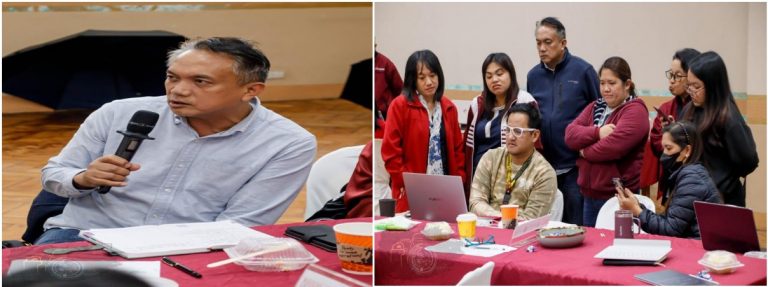
Participants engaged in case-based scenarios and small group deliberations, applying ethical principles to real-world health research contexts. Faculty members from Nursing and Midwifery—alongside colleagues from allied health departments—presented outputs during plenary sessions, showcasing applied understanding and reflective insights.
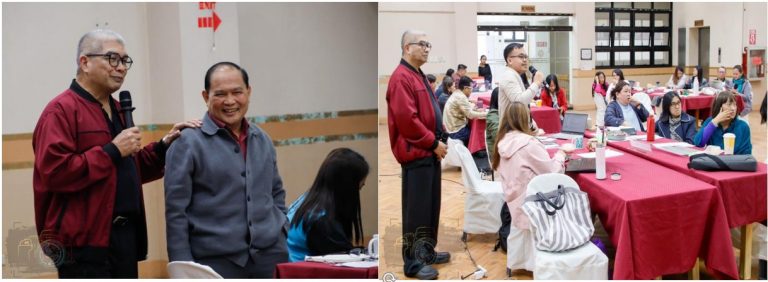
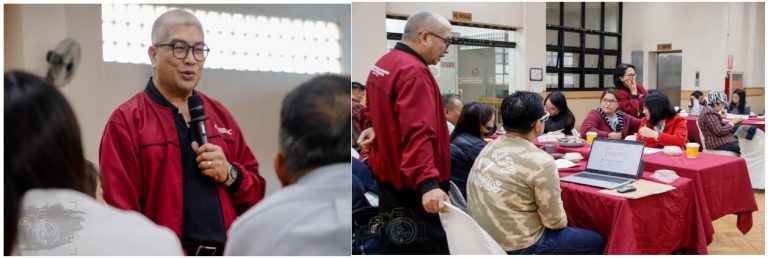
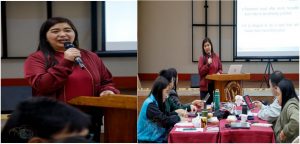

Day 2: Deepening Ethical Integrity in Research Practice
From protecting the vulnerable to exploring AI’s role in research ethics
The second day of Baguio Central University’s Basic Research Ethics Training (BRET) unfolded as a tapestry of rigor, compassion, and innovation—underscoring the University’s commitment to ethically sound research, especially in the healthcare and education sectors. Hosted once again at the Margarita Joven Fernandez Hall, the sessions spotlighted ethical safeguards essential to nursing, midwifery, and allied disciplines.

Protocol Assessment Forms: Refining Ethical Reporting
The day opened with a thoughtful Review and Preview of Assignment Reporting, zeroing in on the Protocol Assessment Form. Participants engaged in practical exercises to identify gaps, clarify ethical concerns, and refine their documentation strategies—an important step toward CHED-aligned quality assurance and institutional consistency.

Protecting Vulnerability in Research – Dr. Robert Tolentino
In a stirring presentation, Dr. Tolentino guided attendees through the complexities of vulnerability in clinical and community-based research. His talk emphasized the researcher’s ethical duty to recognize, respect, and shield those at risk of exploitation, especially in settings marked by limited autonomy or socioeconomic fragility.
Small Group Work: Safeguarding the Vulnerable
Facilitated by Dr. Tolentino and Elizabeth Porsha Kulallad, participants shared reflective insights and crafted action plans for protecting vulnerable populations. Strategies ranged from consent simplification to culturally attuned communication—all aimed at humanizing ethical research.
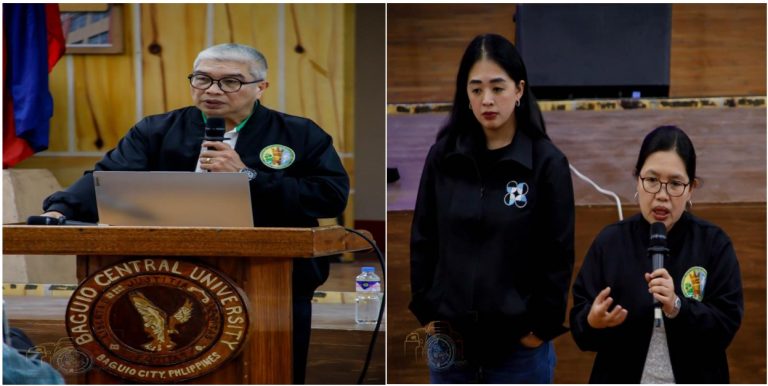
Research During Public Health Emergencies – Lilia Rose A. Say-Awen
The afternoon shifted gears to address urgent realities. Ms. Say-Awen explored ethics amid pandemics, with COVID-19 as a powerful backdrop. She highlighted risk mitigation, rising mental health issue, and response protocols that safeguard both public welfare and research integrity.

Who Is a Qualified Researcher? – Dr. Tolentino
Returning to the spotlight, Dr. Tolentino examined the evolving definition of a “qualified researcher.” Credentials, training, ethical orientation, and context-driven competence were all weighed as pillars of responsible research practice.


Institutional Controls: Role of the Ethics Committee – Dr. Marina SagandoyIn a deeply informative session, Dr. Sagandoy explored the structure of Research Ethics Committees (RECs). She emphasized their role in upholding accountability, fostering ethical reflexivity, and building institutional culture that values inquiry and empathy.
AI in Research Ethics: A Glimpse into the Future
The day wrapped with a timely discussion on Artificial Intelligence in BRET. Faculty explored how AI tools can assist in screening proposals, detecting bias, and simulating ethical scenarios for training—while raising caution around data security, consent, and algorithmic fairness.
As BCU marches toward its 80th year, Day 2 of BRET exemplifies the University’s vision: research that is ethically resilient, socially responsive, and boldly adaptive to emerging technologies. Nursing and midwifery educators left not only informed, but transformed.
By Nestor Guillermo, RN, MNE candidate ,CNSM Faculty
